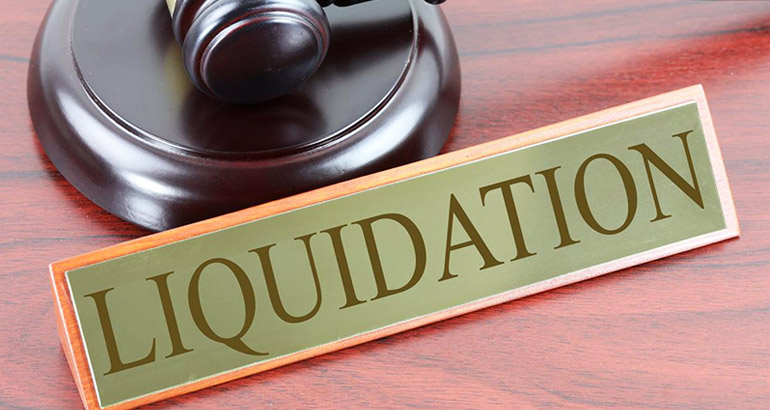See This Report on Company Liquidation
See This Report on Company Liquidation
Blog Article
See This Report on Company Liquidation
Table of ContentsHow Company Liquidation can Save You Time, Stress, and Money.The Of Company LiquidationThe 5-Second Trick For Company LiquidationThe smart Trick of Company Liquidation That Nobody is Talking AboutCompany Liquidation Things To Know Before You Get This
A liquidator is specifically designated to oversee the ending up of a firm's affairs in order for it to be closed down normally when the firm is going insolvent. The liquidator is an unbiased 3rd party that manages the sale of firm properties in order to settle any type of arrearages.Their duty includes, yet is not limited to: Neutral Movie director: A liquidator is entrusted with working as an unbiased 3rd party to supervise the whole company liquidation process. Produce Statement of Affairs: Liquidators must produce an extensive declaration of affairs document. This record is dispersed to financial institutions, detailing the existing monetary condition of business at the time of its liquidation.
After the liquidation of a company, its existence is erased from Business Home and it discontinues to be a legal entity. If supervisors navigated the process without problem, there would certainly be no fines or individual responsibility for strong financial debts expected. Now, with a fresh start, supervisors can explore brand-new company possibilities, though professional examination is recommended.
Company Liquidation - Truths
If more than 90% of all firm investors concur, liquidation can take location on short notice within 7 days, the minimum legal notice for creditors. Usually, the bigger the liquidation and the more possessions and capital the business has, the longer the process will take.

We understand that no two companies coincide, which is why we will certainly take the time to learn more about your organization so we can recommend the ideal strategy for you. We only work in your benefits, so you can be totally certain in the solution we supply.
The Facts About Company Liquidation Uncovered
In the UK, there is a set procedure to shutting down or restructuring a limited business, whether it is solvent or bankrupt. This procedure is recognized as liquidation and can just be managed by a licensed insolvency practitioner (IP) according to the Bankruptcy Act 1986. There are four major kinds of business liquidation procedure: Creditors' Voluntary Liquidation (CVL); Required liquidation; Administration; and Members' Volunteer Liquidation (MVL).

In these conditions, it is essential that the company stops trading; if business proceeds to trade, the supervisors could be held directly liable and it might cause the insolvency specialist reporting wrongful trading, known as misfeasance, which might result in legal action. The directors select an insolvency expert and once this has been agreed and verified, there is a conference with the shareholders.
The supervisors are no much longer entailed in what takes place, consisting of the sale of the firm's assets. If the directors desire any of the assets, have a peek at this website they can notify the IP.
6 Simple Techniques For Company Liquidation
The main difference is that the business's financial institutions put on the court for a winding up order which requires the insolvent business right into a liquidation procedure. In the majority of cases, financial institutions take this action as a last hope because they haven't gotten repayment via various other types of negotiation. The court appoints a bankruptcy expert, additionally recognized as a main receiver, to conduct the mandatory business liquidation process.
This type of company liquidation is not voluntary and supervisors' conduct is reported to the UK's Assistant of State once the liquidation procedure has actually been completed. Any type of supervisor that falls short to coordinate with the IP or has been involved in supervisor transgression, or a deceptive act, may why not check here result in significant consequences.
It is made use of as a way to protect the business from any kind of lawsuit by its financial institutions. The supervisors of the firm concur to make normal payments to settle their financial obligations over a time period. The assigned administrator takes care of the volunteer administration procedure, and gets the payments which they then disperse to creditors according to the agreed amounts.
The Company Liquidation Statements
This gives the business with time to create a strategy moving forward to save the firm and avoid liquidation. At this point, supervisors hand control of the company over to the designated administrator. If a company is solvent but the directors and shareholders wish to close the business, a Members Voluntary Liquidation is the right option.
The business liquidation process is taken care of by a liquidator selected by my website the supervisors and shareholders of the company and they have to sign a statement that there are no creditors staying. The liquidation process for an MVL resembles that of a CVL in that properties are realised yet the profits are distributed to the supervisors and the shareholders of the business after the liquidator's fees have actually been paid.
Report this page